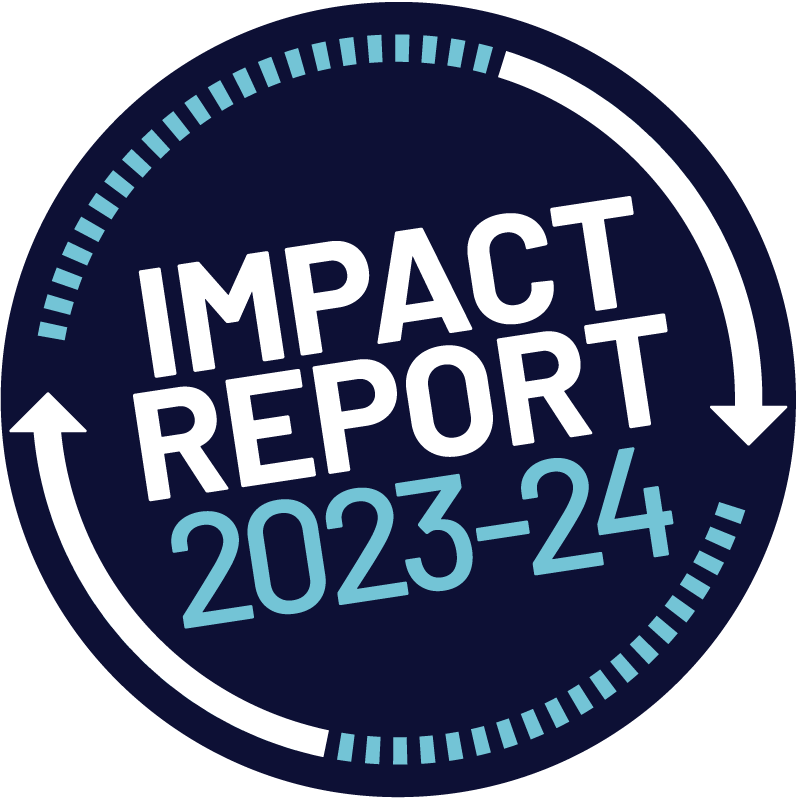

Belu wins King’s Award for Enterprise for Sustainable Development 2024
It’s always nice to start the week with some great


Belu’s previous CEO Karen Lynch addressed the issue of using plastics back in 2019 in her blog here, but as this was over 3 years ago we thought we would explain our stance on plastic, what’s changed since then and be fully transparent about our bottles.
Does Belu use plastic for its ‘grab and go’ bottles?
First things first… Belu’s plastic bottles are made from recycled plastics, also known as rPET, which are also fully recyclable. There is approximately 8.3 billion tonnes of plastic in circulation in the world. We will never create new plastic, there is zero need to do this and single use plastic is not the answer.
Why use plastic, even if it is recycled?
Karen nailed it in 2019 when she stated, “if we can contain all plastic waste, treat it as a resource and reuse it well, we’re making the lowest carbon footprint decision we can make.” Plastic is widely recycled in the UK. Using 100% rPET creates demand and value for recycled plastic bottles which will ultimately fuel investment for better local recycling infrastructure.
We still sell glass bottles on our website, in restaurants, bars and cafes, but rPET is a lightweight, more durable alternative. We also have rPET bottles with sports caps for those who are playing sports, training or prefer this type of cap.

What about switching to cans or cartons, they’re recyclable?
We’ve really thought about this one, and properly done our homework on both options. Here’s our take. Whilst it’s true cans are recyclable, they are extremely carbon intensive to produce. The aluminium in cans comes from a mineral called bauxite which is mined, which throws up a number of environmental issues such as metal contamination, as well as air and water pollution, which can affect local communities near to mines. There still aren’t enough cans in circulation to replace bottles, so more would need to be produced, which sounds like a bad idea to us. If half of the UK’s plastic water bottles switched to cans, mining the aluminium could generate 162,010 tonnes of toxic waste, enough to fill up the Royal Albert Hall over six times.
When it comes to recycling cans, this is also not straightforward. Whilst there are more UK recycling plants in 2023, reducing the need to export and re-import the recycled cans, it is still a long process. Cans are firstly shredded, they are then heated to remove previous branding, the pieces then enter a furnace powered at 750 degrees celsius, the boiled metals are cooled and rolled into new cans. This heating creates a high level of emissions. Plastics are only heated once during the recycling process, making this the greener option.
Cartons are another tricky one. The materials within some cartons include polyethylene, which isn’t recyclable. Nowadays we have cartons which can be recycled, however only 40% of cartons in the UK actually get recycled. Cartons contain multiple layers: aluminium, paperboard, and 4 layers of polyethylene. The aluminium and polyethylene layers make things complicated. In an ideal world all layers would have be separated out and then used to make more cartons. However, when the materials are separated, the paperboard becomes paper, while the polyethylene and aluminium go to the cement industry.
So, although cartons are reborn as paper and cement, this means raw materials are used to make more cartons, causing more waste. If half of the UK’s plastic water bottles switched to cartons, it would create 98,141 tonnes of low-quality waste every year because cartons can’t be turned back into new cartons. That’s enough to fill almost 9,000 bin lorries.




So what’s the best way to consume water if I don’t want to create waste?
In terms of carbon footprint, rPET bottles are by far the lowest, followed by cartons, cans, and glass. rPET bottles, cans and glass are suited to closed-loop recycling systems and can be recycled into new products. Cartons are not suitable for closed-loop recycling (cannot be made into new cartons) and the UK only has the capacity to recycle approximately 40% of cartons sold. Across all formats, high levels of recycled content and removal of excess packaging weight can reduce the overall carbon impact of packaged drinks products.
Refillable bottles are the way to go if you’re out and about. At a restaurant, bar, cafe or in an office setting a filter tap is a great alternative. In 2015 we were motivated to do the right thing and reduce the amount of packaging and single use in our operations, this was the genesis of the filtration part of the business.
To find out more about filtration, click here.


It’s always nice to start the week with some great


Read Belu’s 2023-24 Impact Report here Today at Belu, on
We are part of a growing number of companies that